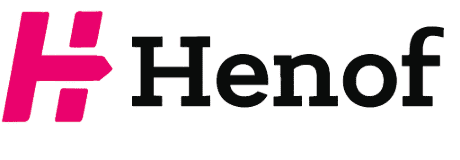Introduction
The legal challenges faced by Di동코리아 have sent shockwaves through the business world, highlighting the critical importance of corporate responsibility. Known for its dominant role in the consumer electronics industry, the company recently faced severe penalties due to alleged violations of Korean laws. This article delves into the events leading to Di동코리아 처벌, the legal framework involved, and the lessons businesses can learn to avoid similar pitfalls.
Table of Contents
What Led to Di동코리아 처벌?
Understanding the Background
- Di동코리아, a major player in the consumer electronics industry, was founded in 1998 and quickly rose to prominence as an innovator in home appliances and smart technology.
- The trouble began in 2021, when whistleblowers revealed that the company had been engaging in fraudulent accounting practices to inflate profits and mislead investors.
- Additionally, the company faced allegations of violating labor laws, including underpaying employees and failing to provide proper working conditions in its manufacturing facilities.
Key Examples
- In 2022, a government investigation revealed that Di동코리아 had manipulated financial records for three consecutive years, inflating its revenue by ₩50 billion to attract more investors.
- Another scandal emerged when factory workers reported unsafe working conditions, leading to several workplace accidents in late 2021.
Why It Matters
The downfall of a prominent corporation like Di동코리아 highlights the risks of neglecting ethical practices. It also serves as a reminder to businesses to prioritize compliance and worker welfare.
Legal Framework Surrounding 처벌 in Korea
Key Legislation
- Fair Trade Act: Ensures fair market competition and penalizes anti-competitive practices like price-fixing or fraudulent reporting.
- Labor Standards Act: Protects employee rights and mandates safe working conditions.
- Financial Investment Services and Capital Markets Act: Prohibits market manipulation and mandates transparency in financial reporting.
How It Applies to Di동코리아
- The investigation revealed clear breaches of the Financial Investment Services and Capital Markets Act, with manipulated financial records deceiving both regulators and shareholders.
- Violations of the Labor Standards Act led to heavy fines and demands for immediate reforms in the company’s factories.
Implications for Other Companies
This case underscores the need for businesses to stay updated on legal requirements. Non-compliance not only results in penalties but can also lead to significant reputational harm.
Consequences of Di동코리아 처벌
Financial Penalties
- In 2023, Di동코리아 was ordered to pay ₩100 billion in fines for its fraudulent practices and labor law violations.
- The company also faced compensation claims from injured workers, amounting to an additional ₩20 billion.
Reputational Impact
- The company’s public image suffered a severe blow, with hashtags like #BoycottDi동코리아 trending on social media platforms.
- Several investors withdrew their support, causing the company’s stock value to plummet by 40% within months.
Operational Challenges
- Regulatory authorities temporarily shut down two major factories, causing delays in production and supply chain disruptions.
- Di동코리아 had to implement a costly restructuring plan, including layoffs of over 500 employees, to stabilize its operations.
Lessons Learned: How to Avoid 처벌
Strengthen Compliance Mechanisms
- Conduct Regular Audits: Companies should perform internal and external audits to ensure compliance with financial and labor laws.
- Implement Training Programs: Educate employees and managers on legal and ethical standards to prevent violations.
Foster a Culture of Transparency
- Encourage Whistleblowing: Establish safe channels for employees to report unethical practices without fear of retaliation.
- Promote Open Communication: Transparency in operations builds trust with stakeholders and regulators.
Leverage Technology
- Use Compliance Software: Automate the monitoring of legal requirements and flag potential risks early.
- Invest in Safety Tools: Enhance workplace safety by adopting modern technologies in manufacturing and monitoring.
Frequently Asked Questions (FAQ)
What is Di동코리아 처벌?
Di동코리아 처벌 refers to the legal penalties imposed on the company for violating financial, labor, and safety regulations in South Korea.
What were the main allegations against the company?
Key allegations included financial fraud, unsafe working conditions, and underpayment of employees in violation of Korean laws.
What were the penalties imposed?
Di동코리아 faced fines totaling ₩120 billion, along with operational disruptions and reputational damage.
How can companies avoid 처벌?
Companies can avoid such penalties by adhering to compliance standards, fostering transparency, and leveraging technology for better governance.
What impact did 처벌 have on Di동코리아?
The company suffered massive financial losses, a decline in stock value, and long-term reputational harm, serving as a cautionary tale for other businesses.
Conclusion
The Di동코리아 처벌 saga offers critical lessons for businesses in Korea and beyond. Non-compliance with financial, labor, and safety laws can lead to devastating consequences, from hefty fines to irreparable reputational damage.
To avoid such pitfalls, companies must prioritize transparency, ethical practices, and proactive compliance measures. By learning from the mistakes of Di동코리아, businesses can safeguard their operations and maintain the trust of their stakeholders in a competitive and highly regulated environment.

